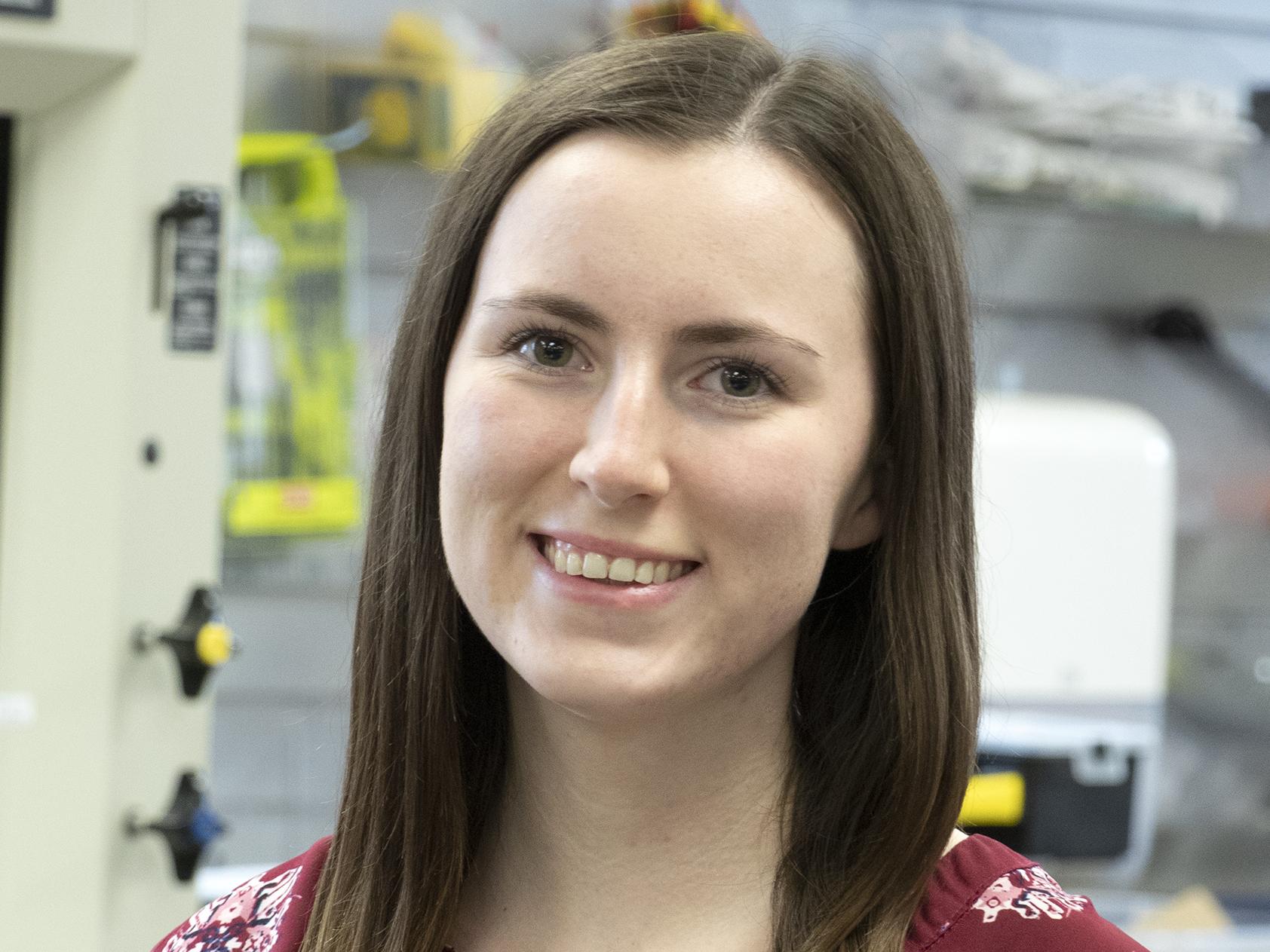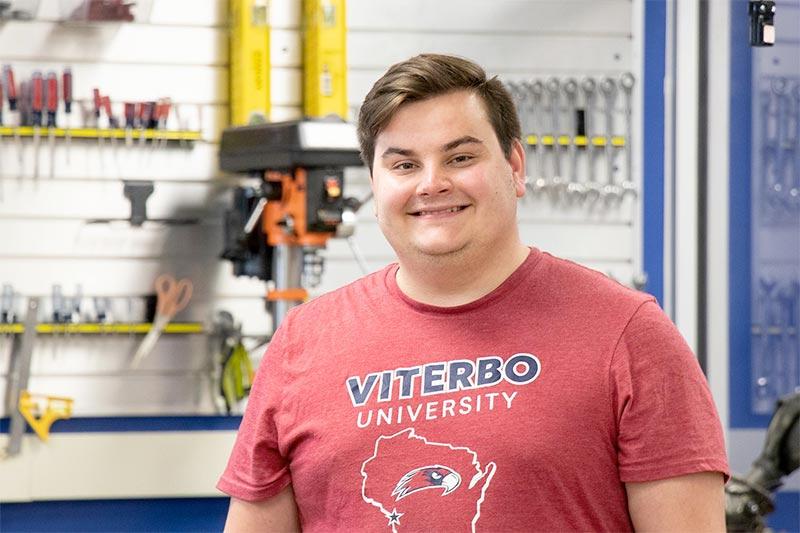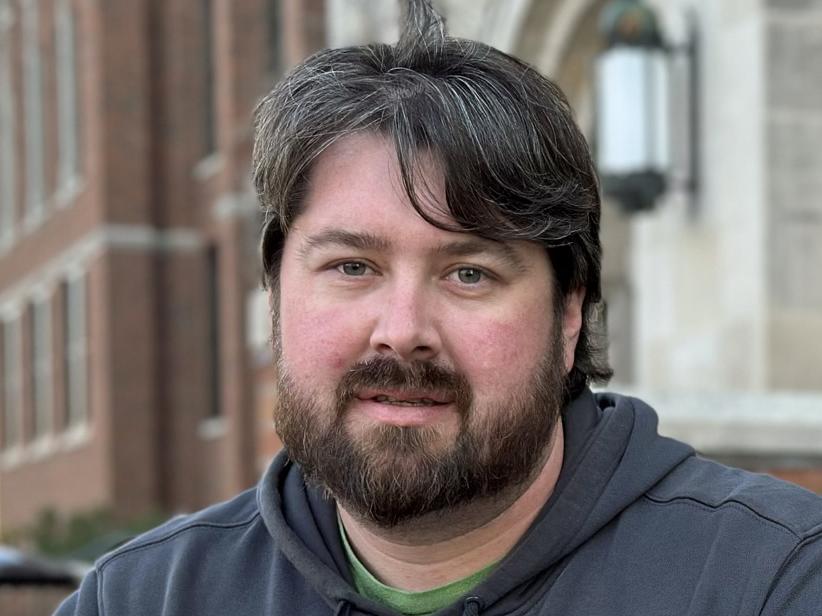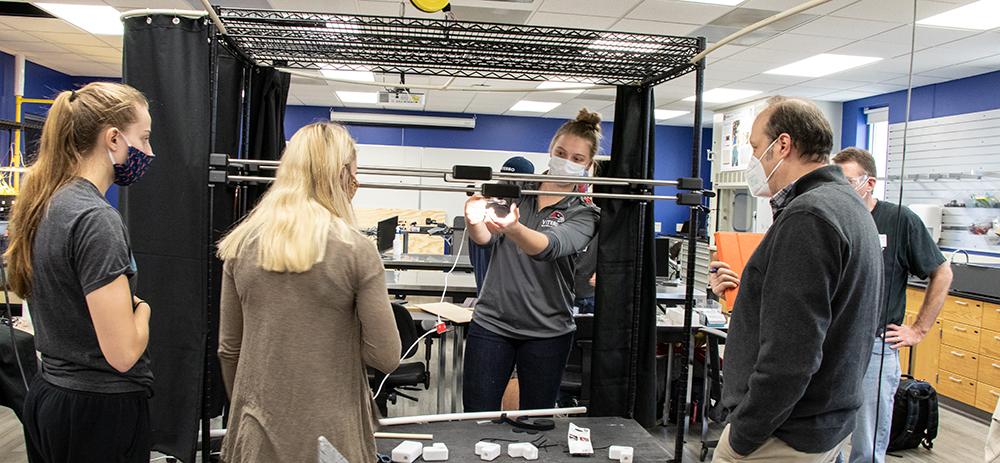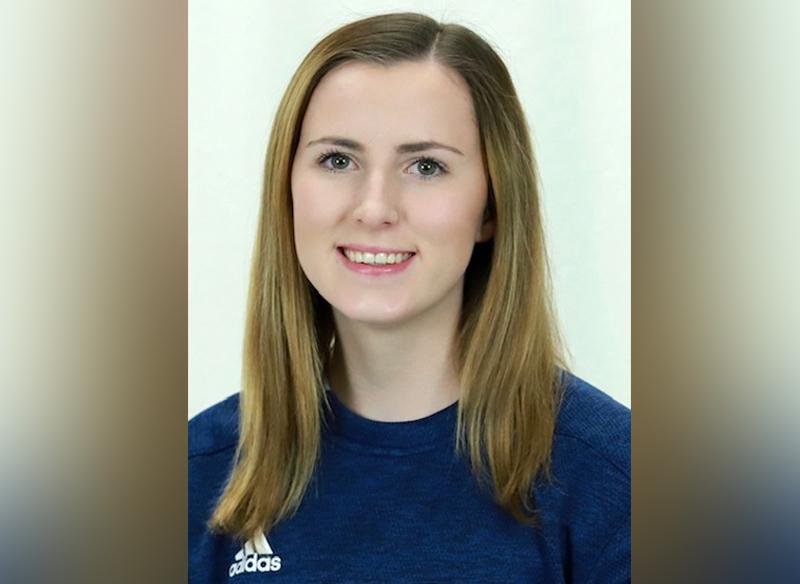When Viterbo University set out to build an engineering bachelor’s degree program, the foundation of the plan rested on one major building block: attaining ABET accreditation.
ABET, which stands for Accreditation Board for Engineering and Technology, certifies through its accreditation process that colleges and university degree programs meet the quality standards of the profession for which that program prepares graduates.
An institution can’t even seek ABET accreditation review until graduating its first cohort in a program, so when Viterbo’s first engineering students started in 2018, they couldn’t be sure their degrees would carry the kind of weight that comes from ABET approval. Viterbo associate engineering professor Emily Vanderfleet made it her mission to make sure ABET granted retroactive accreditation to cover the program’s pioneering graduates.
Vanderfleet recently learned that mission had been accomplished, and Viterbo’s engineering program celebrated with an open house from Oct. 6 on the second floor of the Viterbo D.B. and Marge Reinhart Center for Ethics, Science, and Technology. The event featured a display of engineering projects and opportunities to tour the engineering lab and talk with engineering faculty, current students, and alumni as well as representatives of the companies that supported the program’s development.
“We are very excited about the news because ABET is the gold standard in engineering academic accreditation,” said Vanderfleet, who chairs the Viterbo department of engineering, math, and computer science. “This affirms the quality of our program and expands the range of opportunities for our engineering graduates.”
Sought worldwide, ABET’s voluntary peer-review process is highly respected because it adds critical value to academic programs in the technical disciplines, where quality, precision, and safety are of the utmost importance. Developed by technical professionals from ABET’s member societies, ABET criteria focus on what students experience and learn.
ABET accreditation reviews look at program curricula, faculty, facilities, and institutional support and are conducted by teams of highly skilled professionals from industry, academia, and government, with expertise in the ABET disciplines.
Engineering degrees from ABET-accredited schools are required for some jobs, especially in the government and military realm. But even when it’s not required, having that kind of degree can be a big help in attracting better job offers.
“We’ve been planning from the very beginning to seek ABET accreditation because we knew that was something important and we wanted students who came through our program to have as many opportunities as possible,” Vanderfleet said.
Viterbo’s 10 engineering graduates so far all have landed jobs in their field, even without official ABET accreditation. One 2022 graduate landed a job with a firm that required a diploma from an ABET-accredited institution, but it took Vanderfleet’s assurances that Viterbo was on the glide path to accreditation before they hired him.
Many of Viterbo’s engineering graduates are working for companies with which they did internships as students. The companies supplying those internship opportunities deserve a lot of credit for the success of the engineering program. In addition to providing the chance for students to get real-world work experience, area companies also have offered their expertise and advice through the program’s advisory board, which Vanderfleet noted was singled out for high praise in the ABET review.
“The ABET evaluation team remarked on how impressive ours was in terms of the range of disciplines represented and how involved each of those eight companies were,” Vanderfleet said. “The board is incredible. Even if it’s a last-minute ask, they’re excited to help and super supportive.”
Viterbo’s Engineering Advisory Board includes representatives from Braun Intertec, Chart Industries, Dairyland Power Cooperative, Fastenal, Inland Packaging, J.F. Brennan Company, Mathy Construction Company, Trane Technologies and Western Technical College.
The advisory board also includes two alumni members from the class of 2022: Jacqlyn Mathews, a product design engineer at Trane Technologies, and Jacob Lee, an automation engineer with Tailored Label Products and Manufacturing.
Mathews and Lee both recently came back to campus to take part in a panel of professional engineers offering insights to Viterbo students, and both expressed excitement about the ABET accreditation.
“I’m pretty excited about it,” Lee said. “There are some opportunities it opens up and it really shows the work that the professors and others at Viterbo have put into the program.”
“I think it’s really exciting for the program itself and for the companies that have put so much time and effort and resources into helping us build our program,” Mathews added. I think it really shows all the work that everybody combined has put in to make this happen for the students.”
Vanderfleet emphasized that one important component of achieving and retaining ABET accreditation is continuous improvement. Feedback from alumni like Lee and Mathews is vital for the improvement process as their professional experiences will help strengthen the way Viterbo’s program prepares new engineers for the workplace.

